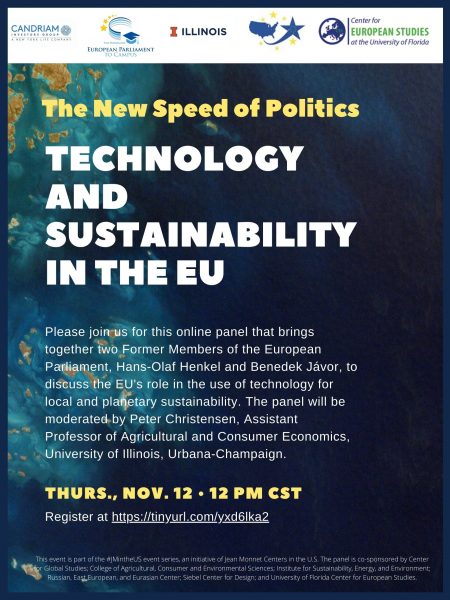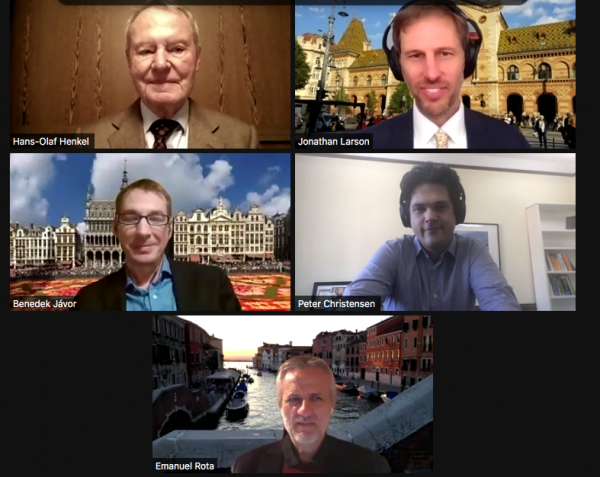University of Illinois in Urbana-Champaign invited Former Member Mr. Javor and Mr. Henkel to participate in an event on 12th of November at 7pm called “The New Speed of Politics: the European Parliament and the U.S. between Solidarity and Conflict”. This moderated panel discussion explored what roles the EU Parliament and U.S. Congress can play in repairing transatlantic relations in the coming years. Mr. Javor and Mr. Henkel answered a couple of questions that moderator Peter Christensen prepared. Mr. Christensen is an environmental economist in the College of Agricultural, Consumer, and Environmental Sciences of University of Illinois. The Former Members responded to questions such as: The expansion of the Executive Power has made presidential elections more eventful in determining the state of transatlantic relations. In light of the result of the U.S. presidential election, what can we expect for the next four years of the incoming administration? What role can the Parliament and Congress play to provide stability regardless of the political parties in power? How strongly do members of the European Parliament prioritise ideological alliances along the right/left axis over the U.S./European axis? Has the EU Parliament been involved in developing and verifying the evolution of transatlantic relations?
You can watch the full webinar here.
On November 18 at 7PM (CET), Hans-Olaf Henkel and World business Chicago participated in a ‘virtual coffee’ event (Zoom meeting) with students to reflect on the lecture of November 12 about the new speed of politics.



